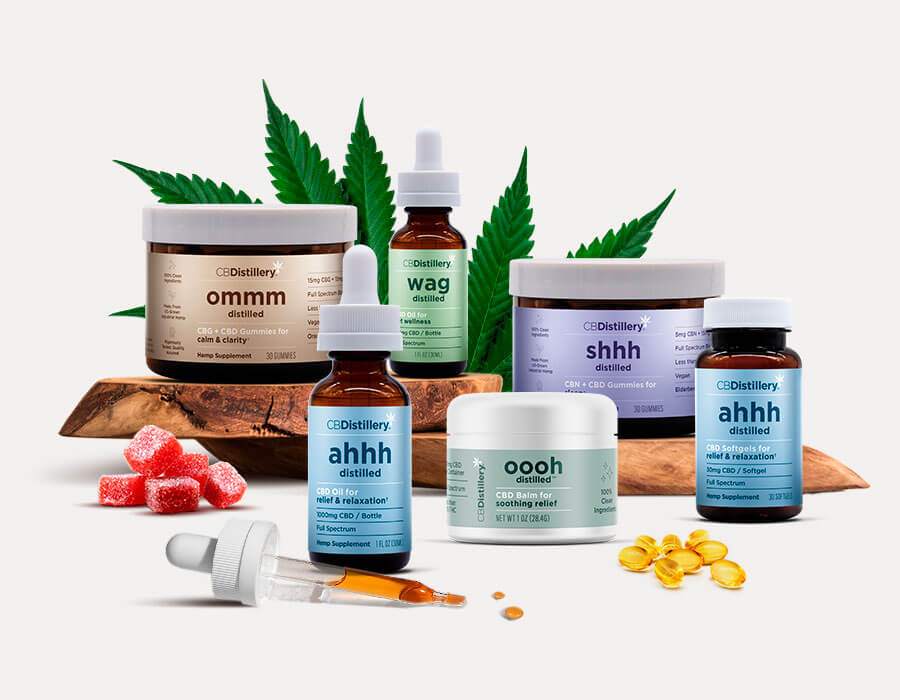Despite the amazing benefits and many different ways that CBD can improve someone’s quality of life, the first question people tend to ask is how quickly they can get rid of it. “Yeah, but how long does CBD Oil stay in your system?” they ask, expecting a short, fixed answer. However, the best answer is that as a plant-based compound, CBD works with the human body. Like any relationship in nature, results may vary.
How Long Does CBD Oil Stay in Your System
The general quick answer is that when ingested, CBD stays in your system for 2 to 5 days. That’s already a big window of variability, but it’s a good baseline to consider if you need the peace of mind that any CBD is totally gone from your system. Remember, that doesn’t mean you will feel the CBD for days on end—most people feel the acute effects of ingested CBD for 2 to 6 hours, but that same CBD may show up on blood tests for 2 to 5 days after ingesting. But even that number can vary widely, with some CBD (and CBD metabolites) remaining in your bloodstream for as long as two to four weeks, depending on a whole host of different factors.
Variables that effect how long CBD stays in your system
No two humans are the same, so already, it helps to consider your weight, height, metabolic rate, levels of physical activity, and general health. When it comes to CBD, it helps to see every human body as a unique individual with an individual biology.
Different forms of CBD
Whether you consume CBD (say, in the form of CBD oils, gummies, capsules, or soft chews), the CBD is entering the bloodstream. How long it stays in your system depends largely on your own metabolic rate. Whether you ingested the CBD on a full or empty stomach can make a big difference as to how long it stays in your system.
Thus, your method of consumption really matters. CBD oils tend to be more popular because they are easy to use. Just remember that ingesting CBD oil or CBD capsules means it’s very likely the CBD will stay in your system slightly longer than if the CBD were entering the body through the lungs (by vaporization) or on the surface of the skin, say, with a moisturizing topical. If you are concerned about how long CBD stays in your system, you must consider which forms of CBD are best for your needs.
What kind of CBD and how much?
In addition to the method of consumption, one must also consider the source of the CBD, as well as the amount of CBD consumed. Hemp-derived CBD is sourced directly from the hemp plant. Beware of uncertified CBD products which may include ingredients from sources other than legal hemp plants. Unregulated, untested products, often sold as CBD, can sometimes include dangerous or toxic materials, or other cannabis byproducts that could show up in the kind of urine tests used to determine illicit drug use.
Remember that hemp-derived CBD is legal, as long as it tests under 0.3% THC. Remember that this also means that by ingesting most CBD oils, one accepts the faintest risk of trace amounts of THC showing up on a drug test.
Urine tests can also reflect the amount of CBD you consume. Let’s say that you consume CBD oil every day, as part of your wellness regimen. Though the half-life of CBD spans between 18 to 36 hours, you are ingesting more each day, leading to a cumulative amount of CBD that is building up in your system. In order to completely clear any CBD from your system, you would have to factor in a longer period of many days (at least) to make sure no more CBD remained in your system. If you use less CBD, say, on an as-needed basis, or once a week, the CBD is likely to leave your system sooner.
What to Consider when using CBD
Calculating the life of CBD and how long CBD stays in your bloodstream may be important if you are required to be drug tested. Before using CBD oil, make sure you understand that along with the many positive effects of CBD, that CBD may stay in your system a bit longer than you expect. This might pose a risk that you run a false positive, or that trace amounts of THC appear on a drug test.
That said, using pure, high-quality CBD products is the best way to lessen the risk of any false positives. Understanding how different amounts of CBD can affect you in the longer term is also key to establishing the correct wait times around any required testing. Because CBD is legal, many drug tests no longer check for CBD. If the possibility of CBD showing up on urine or blood tests is too high risk for you, make sure to plan an ample number of days after your last use of CBD to make sure that all traces have left your system.



